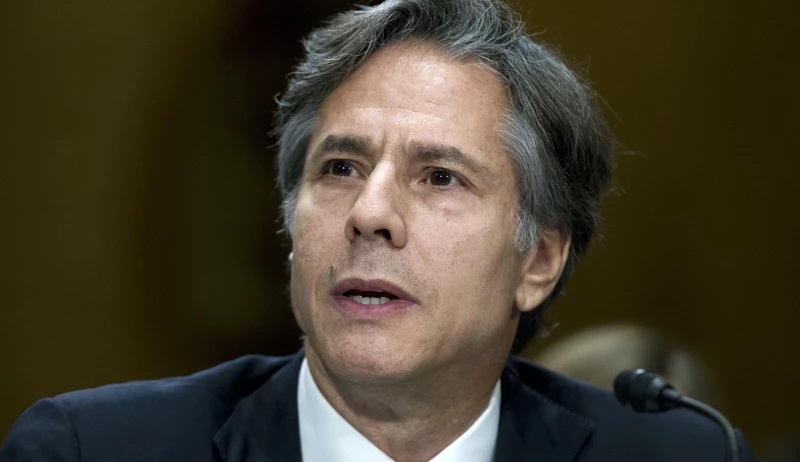 Every few months, the Mujahedin-e-Khalq Organization, an Iranian exile organization that fancies itself the foundation of a government-in-exile, marches in front of the White House. Its members wave portraits of Maryam Rajavi, the group’s leader, and banners singing her praises. The marchers subordinate their entire identity to the group. Members live together and forward their paychecks to the group’s coffers. They blindly accept every revision to history, from the group’s murders of Americans to its alliance with Saddam Hussein. Simply put, the MKO is a cult. That the State Department does not label it one both enables the MKO to lie as it seeks to corrupt politicians and buy endorsements and exposes a hole in American diplomacy that goes beyond one group.
Every few months, the Mujahedin-e-Khalq Organization, an Iranian exile organization that fancies itself the foundation of a government-in-exile, marches in front of the White House. Its members wave portraits of Maryam Rajavi, the group’s leader, and banners singing her praises. The marchers subordinate their entire identity to the group. Members live together and forward their paychecks to the group’s coffers. They blindly accept every revision to history, from the group’s murders of Americans to its alliance with Saddam Hussein. Simply put, the MKO is a cult. That the State Department does not label it one both enables the MKO to lie as it seeks to corrupt politicians and buy endorsements and exposes a hole in American diplomacy that goes beyond one group.
Perhaps it is time for Congress to demand the State Department designate such cults.
Designations are standard practice for the State Department, often carrying with them mandatory sanctions. The annual terrorism and human rights reports may be the highest profile, but there is also an annual Trafficking in Persons report . Countries that fall into its lowest tier are subject to aid restrictions. Another report tackles money laundering . Even when designations only shame rather than sanction, they are important for two reasons.
AUDIT THE MUJAHEDIN-E-KHALQ
First, reporting requirements force diplomats to tackle difficult issues they might otherwise avoid. Second, they are a mirror to regimes whose dictators believe repressing press can allow them to paper over problems or project a false image to the world. This is one reason why autocratic governments, from Turkey to Thailand and from China to Chad, so often complain when the State Department ranks them poorly on objective criteria. Just as with terrorism, some cults are state-controlled. North Korea expects worship of its leader. Eritrea’s Isaias Afwerki is not far behind. Other cults mask themselves as opposition groups or political parties.
In his earlier years, Abdullah Ocalan ran the Kurdistan Workers Party as a personality cult. The PKK’s critics still level the accusation, though such criticisms are increasingly anachronistic . While Ocalan’s writings remain influential, the group has evolved. A single personality no longer dominates. In northeastern Syria, where Kurds have put Ocalan’s writing into practice, the PKK founder’s portrait has become less common. The PKK might object to its inclusion on a political cult list, but for the group, it could be a blessing as annual assessments documenting the group’s evolution would silence those who pretend that the PKK 2022 is no different than the PKK 1982.
Annual assessments would also be useful to stop the slide of groups whose leaders’ greed or ego risks transforming once-legitimate parties into cults. This has been the case with Iraq’s Kurdistan Democratic Party. As Masoud Barzani eases into retirement, he has increasingly transferred authority to his son, Masrour. While democrats recognize they need not replace dictators’ portraits with the photographs of the leaders who replace them, Masrour’s photos increasingly don not only walls and offices but homes, cars, clocks, and clothes. Masrour seeks today to build a cult, with brother Waysi acting as its grand inquisitor.
To force cult designations could be an important tool to check Masrour’s ambitions. It would also blunt the demands for taxpayer money today used more to fund Masrour’s lavish lifestyle than bolster U.S. regional interests.
Terrorism, criminal enterprises, and cults form a Venn diagram of illegality and anti-democratic behavior. That the State Department gives a free pass to political cults is a loophole that undermines the interests of democrats everywhere. It is time for Congress to plug it with demands for definitions, mandatory assessments, and automatic sanctions both to stymie efforts to corrupt American politicians and to prevent waste, fraud, and abuse of American aid.
(The views expressed in this article are the author's own and do not necessarily reflect those of Habilian)
